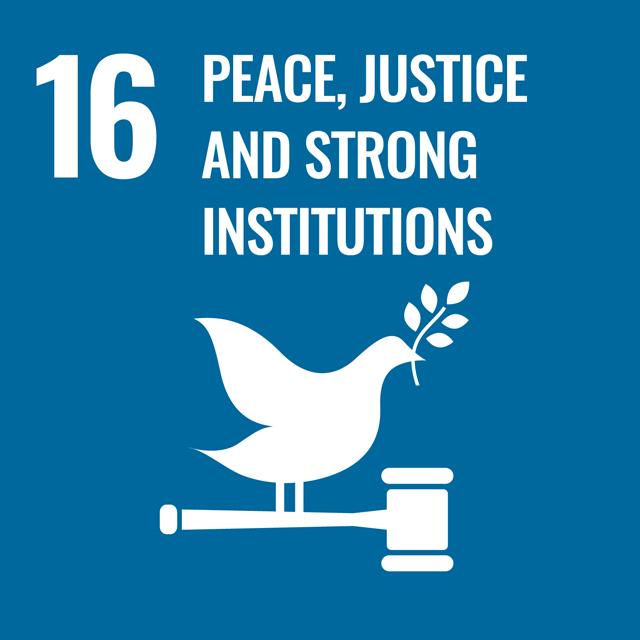Pursuing a career that aligns with SDG 16: Peace, Justice, and Strong Institutions empowers you to foster just and inclusive societies. This goal focuses on reducing violence, corruption, and inequality while strengthening governance. Contribute to building a fairer world.
The Goal: Peace, Justice and Strong Institutions
This goal aims to promote peaceful and inclusive societies for sustainable development, provide access to justice for all, and build effective, accountable, and inclusive institutions at all levels. Key objectives include reducing all forms of violence, ending abuse, exploitation, trafficking, and all forms of violence against and torture of children, promoting the rule of law and ensuring equal access to justice, and developing effective, accountable, and transparent institutions.
The Work
Achieving SDG 16 involves strengthening the rule of law, combating corruption, and ensuring transparency and accountability in governance. Protecting human rights, promoting inclusive decision-making, and supporting legal and judicial reforms are essential. International cooperation and support for capacity-building in institutions are needed to achieve peace and justice.
The Skills
Below is a list of key skills that are in demand for careers related to SDG 16. While it is not necessary to master all of these skills, familiarity with them can enhance your readiness and competitiveness in the job market
- Legal Literacy
- Advocacy
- Communication
- Conflict Resolution
- Policy Understanding
- Politics & Governance
- Public Administration
- Leadership
- Community Engagement
- Empathy
- Negotiation
- Cultural Awareness
Engagement with Queen's and Kingston
You can contribute to SDG 16 by promoting peace and justice in your community, volunteering with organizations that offer legal aid, and advocating for transparency and accountability in governance. Participating in community dialogues, supporting human rights initiatives, and educating others about the importance of strong institutions are impactful actions. Encouraging inclusive decision-making and supporting anti-corruption efforts are also essential steps toward fostering a just and peaceful society.
Volunteering in Kingston
Past QUIP Internships
- Indigenous Youth Research Associate
- Student and CO-OP: Protective Services Officer
- Student and CO-OP: Policy and Foreign Relations
- Student and CO-OP: Litigation and Disclosure
Sample Undergraduate Courses
- Political Science studies
- ENSC 310 Environmental Policy
- LAW 303 Law And Poverty
- DEVS 240 Culture and Development
- LERN 260 Peace Education
- POLS 364 International Peace and Security
- LAW 275 State, Nation & Global Justice
- POLS 457 Issues in Global Justice
- LAW 207 International Law
Sample Graduate Courses
- LAW 853 Law and Poverty
- POLS 851 Global Justice
Career Possibilities
- Lawyer
- Public Prosecutor
- Diplomat
- Legislative Assistant
- UN Peacekeeper
- Criminologist
- Ethics and Compliance Manager
- Risk Analyst
- Communications Specialist
- Cybersecurity Specialist
- Anti-Corruption Financial Analyst
- Microfinance Specialist
- public affairs consultant
- Human Rights Activist
- Politician
- International News Reporter
Corporations, NGOs, and Government Agencies
Corporations can promote peace, justice, and strong institutions by conducting their business ethically and transparently. They can support anti-corruption measures and uphold the rule of law in their operations and supply chains. By promoting inclusive and fair business practices, companies can contribute to social stability and economic development. Additionally, corporations can engage in partnerships with governments and civil society organizations to support initiatives that strengthen institutions, promote human rights, and foster peaceful and inclusive societies.
- Department of Justice Canada
- Correctional Service Canada
- Royal Canadian Mounted Police (RCMP)
- Canadian Security Intelligence Service (CSIS)
- Immigration, Refugees and Citizenship Canada
- Public Safety Canada
 Student Affairs
Student Affairs